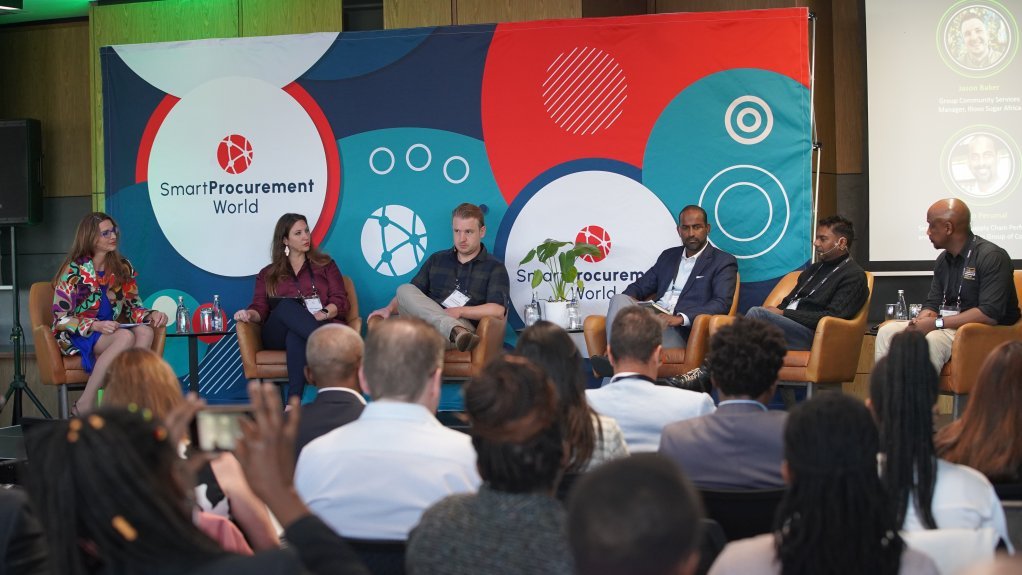Innovation is key to driving change in the work environment and in communities, Illovo Sugar Africa group community services manager Jason Baker told attendees of the three-day Deloitte Sustainability Summit Africa 2023 which was hosted from June 6 to 8 at the Deloitte headquarters in Midrand.
The event included experts and leading business decision-makers from various industries and sectors to discuss transformational needs, strategies, innovation, procurement and how the supply chain can affect environmental, social and corporate governance initiatives, in an African context. The purpose was to harness business partnerships towards more sustainable solutions.
Illovo Sugar South Africa, a subsidiary of the Illovo Group, has a presence across six African countries, and owns four mills in KwaZulu-Natal, and three cane growing estates in South Africa.
Baker shared on Illovo’s journey regarding its efforts to effect change, noting that in an industry such as sugar, which is surrounded by communities dependent on it, there is a problematic legacy of viewing communities as beneficiaries. This results in some employees and decision-makers adopting a patronising approach to development rather than a stance where communities are approached as having agency in their own developmental journey.
“There needs to be a commitment where, when you look at programmes you are implementing, communities are proxies for partnerships. There’s always going to be another programme, another developmental need, but what is consistent in all these things is the human behaviour, human relationships and how to transcend some of the barriers and adopt new technologies and opportunities. That all comes down to how networks are built in those environments and the trust that exists within those nodes,” says Baker.
On the topic of partnerships, Baker touched on how Illovo South Africa mitigated challenges on a recent project, using partnerships as the route to de-risking the ultimate solution.
“You can potentially help de-risk a situation . . . that’s actually where a lot of our investment over the last few years for some of our programmes has actually come from: working with different organisations such as aid organisations, who have their own mandates in bringing in subsequent enterprise development into communities and who are quite happy to help the private sector plan, de-risking the initial stages of the solution.”
Further, he suggests that organisations start “plugging in” to the mandates of various institutions that may be able to help struggling corporates overcome hurdles that those institutions are blind to, simply because of the way they are “wired”; corporations should seek assistance from various governmental and non-government agencies to introduce some ’out-of-the-box’ solutions.
“One of the biggest things we've tried to do is rewire all the ring-fencing around governance systems that re-engineers how an organisation that's wired through efficiency could potentially see something like this, and to also beef up a range of different partners and mandates so they can see things from different angles that help to de-risk the initial investment into some of these things,” Baker explains.
He adds that a practical application of “customer human centric design” in Illovo South Africa’s strategy is around integrating into the surrounding communities, as historically, large operations which were set up in those communities became enclave economies creating much inequity within and outside the fence.
Illovo Sugar started a project of embedding community engagement officers who collect data from communities, establish community development councils, help to raise issues and aid in orchestrating a relationship between the business and community. He notes that since starting this, the company has encountered fewer roadblocks and that the relationships have become more organic.
“We're a very long way off from it, but we've started testing this with baseline servers. We're measuring our network interactions when we engage with people; the nature of those engagements, how we can reinforce that,” says Baker, adding that external partners can come in to help overcome internal issues, so that there are practical ways to start embedding this approach into operations in line with the business model.
Much of a company’s impact is an outcome of a relationship based on trust, even though adoption is the biggest issue as it pertains to strategic planning, and being able to take new knowledge and technology and then commercialise it in ways that benefit those communities, Baker notes.
He stresses that without trust, and engagement that goes deeper than communicating, a scenario will exist in which companies are constantly investing money into “black hole” initiatives, owing to lack of true adoption that comes from integrating with communities.
Edited by: Nadine James
Features Deputy Editor
EMAIL THIS ARTICLE SAVE THIS ARTICLE
ARTICLE ENQUIRY
To subscribe email subscriptions@creamermedia.co.za or click here
To advertise email advertising@creamermedia.co.za or click here













